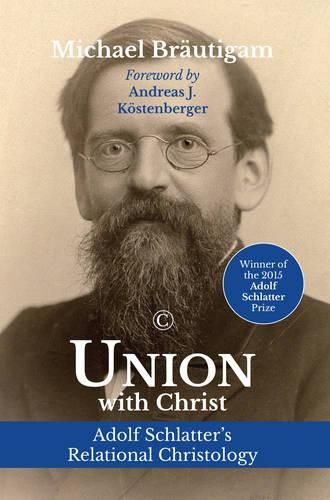Readings Newsletter
Become a Readings Member to make your shopping experience even easier.
Sign in or sign up for free!
You’re not far away from qualifying for FREE standard shipping within Australia
You’ve qualified for FREE standard shipping within Australia
The cart is loading…






Union with Christ is the first extensive work on the Christology of Swiss theologian Adolf Schlatter (1852-1938). It offers fresh insights not only to readers interested in Adolf Schlatter’s theology in particular, but also to students and professionals from the historical and dogmatic disciplines in general. The first part of the book sets the scene by tracing the biographical context of Schlatter’s Christological thinking. It explores Schlatter’s evaluation of Kantianism, of the revival movement, of Ritschl and the Ritschl school, and of dialectical theologians, particularly Karl Barth. Based on this analysis, the second part of the work examines the dogmatic shape of Schlatter’s relational Christology in more detail. From the perspective of Schlatter’s theological triad of seeing-act, thinking-act, and life-act, it investigates his relational account of Jesus Christ against the backdrop of a distinct Trinitarian framework. According to Schlatter, Jesus reveals his divinity on the cross as he is able to maintain fellowship with God in spite of God-forsakenness - mediated by the Holy Spirit - and he reveals his humanity by remaining in close communion with sinners, transforming them and gathering them into the new community of faith.
$9.00 standard shipping within Australia
FREE standard shipping within Australia for orders over $100.00
Express & International shipping calculated at checkout
Union with Christ is the first extensive work on the Christology of Swiss theologian Adolf Schlatter (1852-1938). It offers fresh insights not only to readers interested in Adolf Schlatter’s theology in particular, but also to students and professionals from the historical and dogmatic disciplines in general. The first part of the book sets the scene by tracing the biographical context of Schlatter’s Christological thinking. It explores Schlatter’s evaluation of Kantianism, of the revival movement, of Ritschl and the Ritschl school, and of dialectical theologians, particularly Karl Barth. Based on this analysis, the second part of the work examines the dogmatic shape of Schlatter’s relational Christology in more detail. From the perspective of Schlatter’s theological triad of seeing-act, thinking-act, and life-act, it investigates his relational account of Jesus Christ against the backdrop of a distinct Trinitarian framework. According to Schlatter, Jesus reveals his divinity on the cross as he is able to maintain fellowship with God in spite of God-forsakenness - mediated by the Holy Spirit - and he reveals his humanity by remaining in close communion with sinners, transforming them and gathering them into the new community of faith.